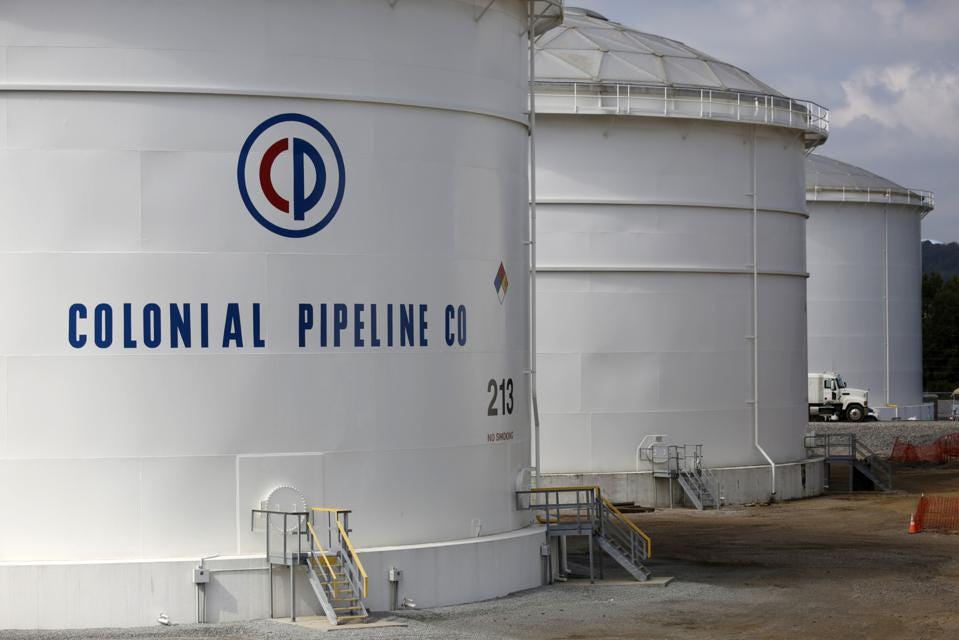NC Regulators' Patience Is Wearing Thin On Colonial Pipeline Spill
NC DEQ wants answers from the Koch-owned pipeline company, and they aren't making it easy.
North Carolina state environmental regulators have issued yet another Notice Of Continuing Violation to Colonial Pipeline last week, stemming from the company’s massive 1.29 million gallon gas spill in Huntersville, NC last year. According to the notice (which was first reported by Lisa Sorg for NC Policy Watch), which is Colonial’s fourth, the company has failed to adequately provide to regulators information they’ve requested over the course of the 14 month-long investigation—at forefront being an updated estimate as to the amount of petroleum product Colonial thinks actually spilled.
Colonial Pipeline, whose last 1.2 million gallon estimate came in the first quarter of the year, has recently asserted in previous months that not only is that number not accurate (and has since been surpassed), but that estimating a new number would require all cleanup operations to cease, and as such the company has refused to provide one. According to the notice, Colonial has repeatedly asked for extensions to provide regulators with the laundry list information they required as part of previous violation notices, and with each passing deadline, Colonial has provided only a fraction of what has been asked of them.
"[Colonial] requested an extension for submittal of the vertical extent of groundwater contamination throughout the plume of contamination. However, Colonial Pipeline did request an extension of submittal of detailed information regarding predictive calculations for the estimation of product volume released.” the notice states, directing Colonial Pipeline to “immediately submit updated detailed information regarding predictive calculations for the estimation of the extent of product volume released[…]Please also provide to DEQ all currently available information relevant to your product volume estimation.”
“The volume of the petroleum release is vital to understanding the magnitude of contaminant impact, improving the accuracy of projected remediation timeframes, and tracking changes in contaminant mass and/or mass discharge over time while also providing important metrics for assessing remediation progress.” The notice concludes “Failure to comply with the State’s rules, in the manner and time specified, may result in the assessment of civil penalties and/or use of other enforcement mechanisms available to the State. Each day that a violation continues may be considered a separate violation”
NC DEQ also provided Colonial with a list of a dozen additional items that the company must provide the state, including a new volume prediction, much more detailed sampling and measuring calculations and modeling, a log of daily fluid recovery rates, and a list of all properties that were purchased by Colonial since the release. There also appears to be numerical discrepancies between the volume of product Colonial has reported leaving the site and the volume reported being received by facilities in charge of disposal. This information is to be required to be included in Colonial’s monthly report to the State of North Carolina, which at present is the only available method of tracking a total volume of the spill.
Colonial has reported recovering 1,289,199 gallons from the spill site, from which the leak potentially went undetected for weeks until two teenagers on ATV’s discovered it while riding through the Oheler Nature Preserve outside of Huntersville, NC in August 2020. Colonial has also reported to federal regulators that they “lost” approximately 170,000 gallons which will be unable to be recovered (a low-end estimate). As it stands, the Colonial spill is the second largest pipeline spill in US history, with a conservative estimate of 1.46 million gallons (currently recovered + lost).
Despite condemning the entire 5,500 mile Colonial Pipeline as a risk to both public and environmental safety with the potential for catastrophic failure throughout, which provides nearly half of the southeast US with gas, federal regulators quickly and quietly settled the matter with the company after a short investigation, with the result being as long as Colonial cooperated with the terms of the agreement (which they helped broker), the company would not face any monetary penalties or further litigation. State regulators, on the other hand, seem to be digging in on a much different strategy, making their investigation a protracted, slow affair in which NC DEQ is requiring Colonial is having to either publicly disclose even the most minute details of the spill, before making any such agreement with Colonial.
Stay tuned to PolitiFi for updates on this story as they occur.


